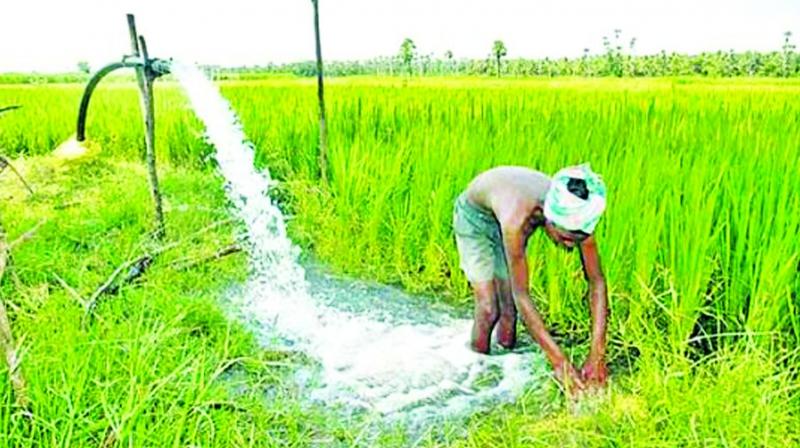GST makes agricultural costly, neutralises sop benefit

Khammam: The rollout of GST appears to have made the cost of agricultural operations higher, thanks to a 12 per cent rise in fertiliser prices.
According to latest prices, the price of urea bag has been increased by Rs 36 compared to the pre-GST regime and a bag of complex fertiliser is priced Rs 80 more.
Seed companies too have increased their product prices. However, the government had banned the sale of seeds for the interim period.
But with all mandals receiving rain, farmers are in no mood to wait and are buying chilli and cotton seeds from Guntur, whose quality remains unverified.
Though the amount received under Rythu Bandu proved to be a relief to small and marginal farmers, they say the investment support is not sufficient to cover the rising farming costs.
State Agriculture Action plan to be unveiled soon
The state government has set a target of 1.37 crore tonnes for foodgrain production this year (2018-19) — an inc-rease of 47 lakh tonnes over last year’s target.
The Agriculture Action Plan is likely to be unveiled this week.
Though the last year’s target was 90.88 lakh tonnes, only 85.45 lakh tonnes of foodgrains were produced. The target was missed due to lower production cause by deficit rainfall during kharif season last year.
Among all the foodgrains, paddy plays the major role with higher production in the state.
The agriculture department has put the estimated normal crop sown area for 2018-19 at 1.53 crore acres. Of this, the normally sown area in kharif has been pegged at 1.14 crore acres and rabi 38.75 lakh acres.
Agriculture minister Pocharam Srinivas Reddy said, “Kaleshwa-ram lift irrigation project is expected to provide water to an additional five lakh acres by rabi this year. Another nine lakh acres will get irrigation facility with the compl-etion of various pending projects. The crop sown area will increase by 14 lakh acres over last year, which will in turn result in higher foodgrain production."
The government has so far distributed Rs 4,500 crore to 44.75 lakh farmers under the rythu bandhu scheme, which is expected to increase the crop sown area.

